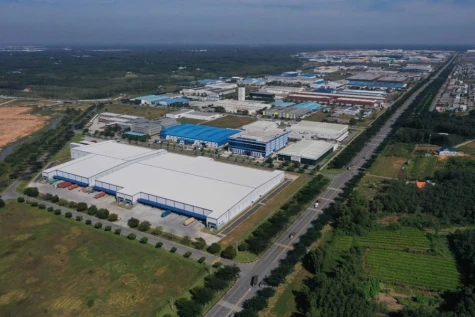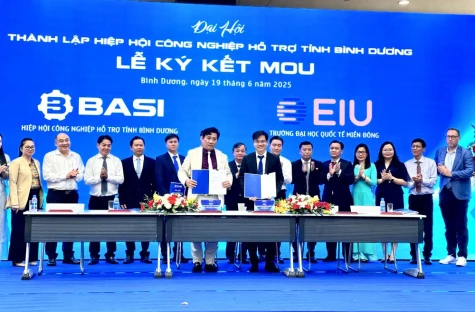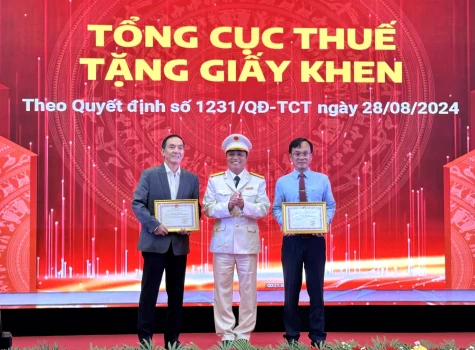E-commerce has become a crucial driver of the digital economy in the 21st century. With its ability to connect the world and create countless new business opportunities, e-commerce has enabled individuals and businesses to access markets more easily than ever before. However, along with its clear benefits, the rapid growth of e-commerce also presents a major challenge in protecting intellectual property rights, particularly copyright.
Copyright infringement is not only a legal issue, but also has a severe impact on the development of culture, education and consumer trust. This is a matter that cannot be overlooked and requires serious consideration and effective solutions.

One concerning reality today is the increasing occurrence of copyright infringements in e-commerce. These infringements often take sophisticated forms, including the unauthorized distribution of digital content like books, music and films in electronic file formats, or the distribution of counterfeit products through major e-commerce platforms like Shopee, Lazada and Tiki. Many cultural, educational and scientific works are copied, falsely labeled and then sold widely on social media. These actions not only result in significant financial losses for authors and publishers, but also erode the value of creativity and consumers’ trust.
According to Article 28 of the current Intellectual Property Law, as amended in 2009, 2019 and 2022 (briefly called the Intellectual Property Law), it stipulates the acts of copyright infringement.
Accordingly, it can be understood that in principle, copyright infringement refers to acts by individuals or organizations that engage in unlawful activities, violating works protected by intellectual property law, or infringing upon the works of authors or copyright holders without their consent. Therefore, the purpose of the existence of copyright protection is essential.
Copyright protection is not only a legal tool to safeguard creative achievements, but also acknowledgment and recognition of the intellectual labor of individuals and organizations in the fields of culture, art and science. It serves as a driving force for innovation and creativity, creating an environment that encourages authors to continue contributing, thereby positively impacting the development of culture, art and science.

Protecting copyright not only brings spiritual benefits, but also material benefits to authors through the exploitation of their works. This partly compensates for the effort, time and costs they have invested in the creative process while also creating a premise for developing related products and services, bringing sustainable economic value.
The consequences of copyright infringement are extremely serious. Economically, authors and publishers lose their legitimate revenue while wrong businesses gain unlawful profits. Socially, the widespread distribution of counterfeit products diminishes the value of education and culture, causing consumers to lose trust in the online market. More importantly, the lack of protection for legal rights weakens the motivation for creativity and hinders the development of culture and arts.
To address this situation, comprehensive and effective solutions are needed to protect copyright in e-commerce. First, it is essential to verify the identity of online business accounts. These accounts should be linked to personal identification cards or registered phone numbers, making it easier for authorities to trace violators. This is an important first step in controlling violations on e-commerce platforms.
In addition, it is necessary to establish a mechanism to control the origin of products. Products traded online must have documents proving legitimate intellectual property rights. Business accounts should be required to report periodically on the origin and revenue of products to authorities. This will help minimize the risk of distributing wrong products.
Modern technology also plays a crucial role in protecting copyright. Solutions such as blockchain and artificial intelligence (AI) can be applied to monitor, detect and quickly address violations. Blockchain helps verify the origin of works while AI can detect copied or illegally distributed content. Social media platforms and e-commerce sites should be responsible for removing infringing contents upon request from authorities.
Additionally, strengthening sanctions is necessary to deter violations. Strict penalties such as administrative fines, business account suspensions or criminal prosecution for repeat offenders, will help reinforce the authority of the law. Close cooperation between State agencies and e-commerce platforms is essential to promptly address copyright-related complaints.
Finally, propaganda campaigns to raise public awareness are a long-term but equally important solution. Consumers need to fully understand the risks of purchasing products with unclear origins and recognize their responsibility in building a transparent business environment. Propaganda campaigns should focus on guiding consumers on how to identify genuine products while encouraging a task reporting violations to protect collective interests.
In conclusion, copyright infringement in e-commerce is not only a legal issue, but also a cultural and economic challenge in the digital age. Protecting copyright not only honors creative value, but also contributes to building up a healthy, transparent and sustainable online business environment. With cooperation between the law, technology and public awareness, we can fully control and minimize this issue, contributing to the growth of the digital economy in the future.
Reported by Minh Tien-Translated by Kim Tin




























